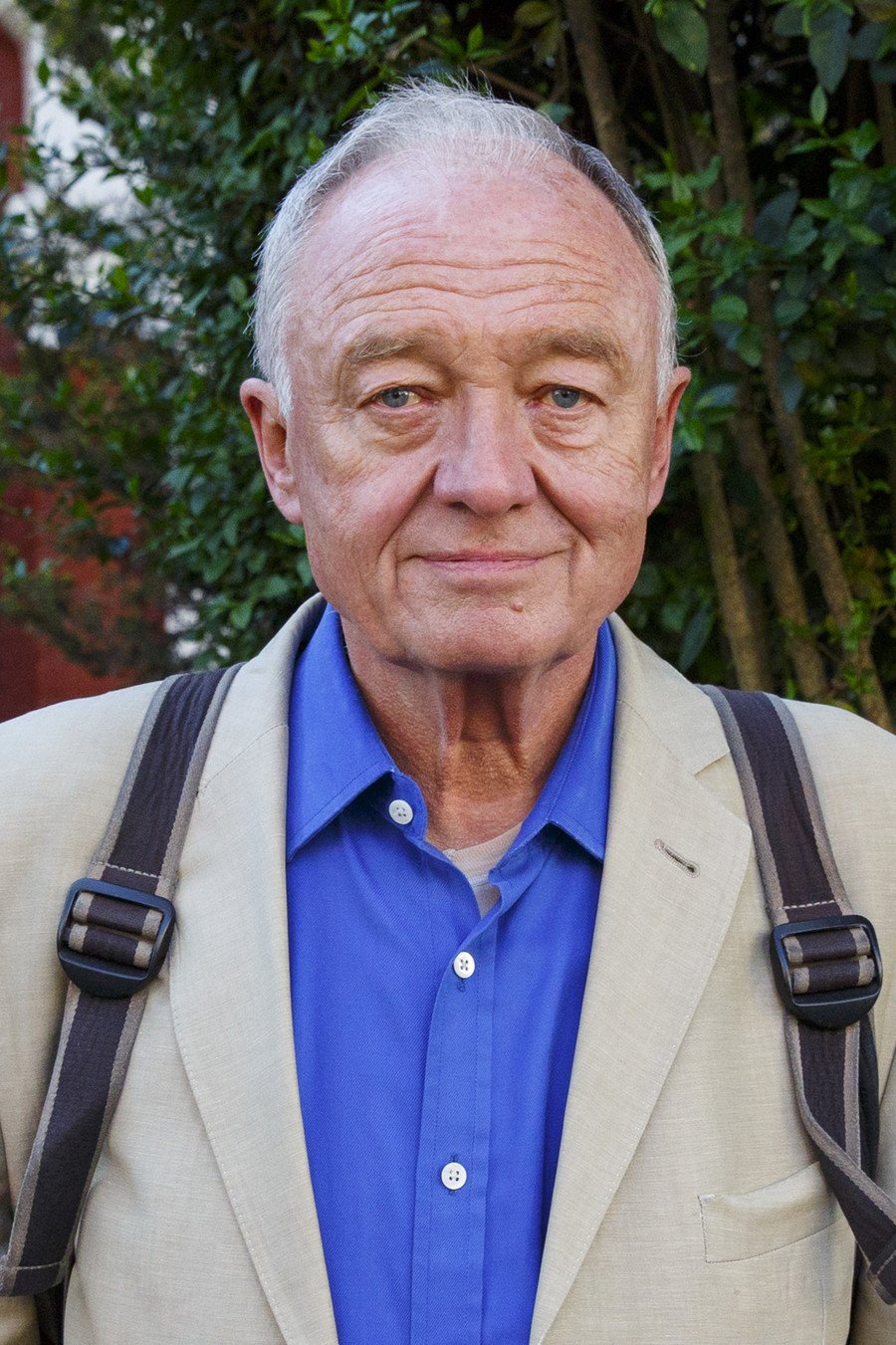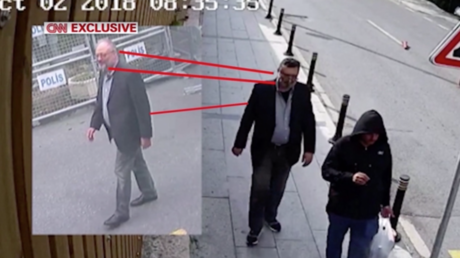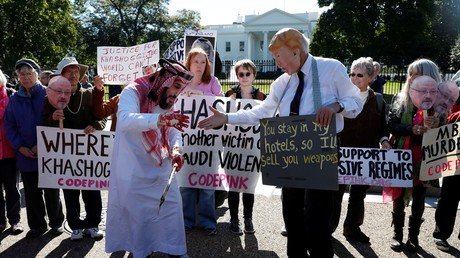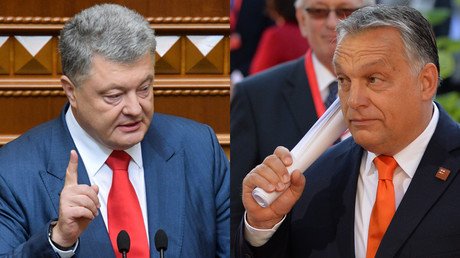Ken Livingstone: Stop double standards, sanction Saudis for Yemen war, kidnappings & killings
When we remember how rapidly the US imposed sanctions on Russia over Crimea and the Skripal poisonings, it's bizarre to watch US President Trump's reaction to the killing of journalist Khashoggi by the Saudis.
After more than two weeks of lies and deception, Saudi Arabia has finally admitted journalist Jamal Khashoggi was killed, but it is clearly another lie when they claim that this 59-year old man died because he got involved in a fist fight with 15 Saudi security staff and officials.
The scale of media coverage of this murder has been breathtaking and has done more damage to the reputation of the Saudi royal family than anything in recent years, but this hasn't stopped the support of Britain and the US for the Saudi regime.
Britain increased its weapon sales to the Saudis from £820 million in 2016 to £1.5 billion in 2017 but what is appalling is that these UK fighter planes and bombs are being used to kill innocent civilians in Yemen.
Back in August, it was reported that at least 26 children had been killed in Saudi airstrikes. The United Nations Humanitarian Office also pointed out that at least four women died in another Saudi strike just two weeks after 29 children were killed by a bomb attack on a school bus. At the end of the month, another Saudi airstrike saw the death of twenty-two children and four women who were trying to escape the fighting in their area.
The UN said that they and their partners were doing all they can to reach people and provide assistance. Ever since, the Saudis provided their support for the attacks on the Shia community that live in the western part of Yemen. They have also now started blockading the port of Hodeida. This has cut supplies of food and medicine to the Shia community which means that Yemen is on the brink of its worst famine in over a century.
Famine could engulf the country in the next three months with at least 12 million civilians at risk of starvation, said the UN humanitarian coordinator for Yemen.
This civil war has been going on for three years with thousands of civilians caught in the middle and at least 10,000 killed and millions displaced. The UN agencies working in Yemen have condemned the attacks on civilians, but this horror continues. What is remarkable is how little coverage we have in the world's media about this horrific civil war compared with the killing of just one journalist in the Saudi consulate. There is nothing new about the horrors perpetrated by Saudi Arabia, who for decades have been spreading the extremist Wahhabi version of Islam.
When I was the Mayor of London, British television channel Channel 4 broadcast a documentary series based on a video footage gathered from an investigation into mosques across the UK. They covertly filmed preachers and obtained books and DVDs which were hate-filled invective against Christians and Jews. They presented women as intellectually deficient and in need of beating if they did not follow the Islamic dress code. One of the mosques where this was filmed was funded by Saudi Arabia.
Sheikh Abdullah el-Faisal, a Jamaican who had converted and studied at a Saudi university, was caught saying "Jews are rotten to the core and sexually perverted, creating intrigue and confusion to keep their enemies weak." He was sentenced to nine years in prison for urging his audience to kills Jews, Hindus and Americans. One of the young men he inspired was Germaine Lindsay who was one of the terrorists who set off four bombs on London Underground trains and a bus in 2005, killing 52 people and injuring 700.
The majority of Muslims have always pointed out that these individuals are just a tiny minority of their community, but concerns are growing about the increased reach of Wahhabism funded by the Saudis which has now reached three billion dollars a year and has been spent to build 1,500 mosques, 210 Islamic centres and dozens of Muslim academies and schools.
They have also overwhelmed the Islamic book market with very cheap but high quality Wahhabi literature which has had the effect of forcing non-Wahhabi publishers across the Muslim world to close.
The Saudi regime keeps 85 percent of the student places at the Islamic University of Medina for foreign students which has led to hundreds of British Muslims returning to the UK espousing support for the Saudis. The Saudis were also behind the funding of schools in Pakistan that gave rise to the Taliban.
Police surveillance of Britain's 1,500 mosques back at that time identified only 68 that could be clearly acknowledged as promoting Wahhabism.
Clearly there is nothing new about the killing of Khashoggi, but what is new is the emergence of Mohammed bin Salman who has now been appointed heir to the Saudi throne in his early thirties. Immediately there was widespread publicity that he was going to progressively transform his country by allowing women to drive, reopening cinemas and restricting the powers of the morality police. He vowed to return to moderate Islam and curbed the reach of hard-line clerics as well as modernising the Saudi economy and making it less dependent on oil.
This was all very well received in the Western press, but little mention was made that he was responsible for rounding up dozens of intellectuals and activists and critics from the streets of other countries to bring them back to be imprisoned in Saudi jails.
Saudi Arabia is one of only a handful of absolute monarchies where the monarch controls all power, but the current monarch of Saudi Arabia has effectively devolved his powers to bin Salman. Unlike many of the Saudi elite who get a degree from a Western university, bin Salman stayed in his own country and studied law at King Saud University. His father is now in his eighties and rumoured to be suffering from pre-dementia so there is no doubt that the powers are in bin Salman's hands. He is depicted as impatient and reputed to spend eighteen hours a day on official business, but many say he cannot accept even the mildest criticism. One anonymous Saudi source said: "People who tried to say no, even gently and diplomatically, faced consequences."
His sensitivity was revealed when a single tweet from Canada, calling on the kingdom to release jailed activists, prompted him to sever diplomatic and trade ties.
The simple fact is Saudi Arabia is the principal ally of the US in the Arab world and a huge purchaser of US weapons. How we can continue to allow these double standards in our foreign policy is unimaginable, but one of the reasons why the Saudis get away with it is that they spend so much money influencing our media and our senior politicians.
This Saturday, the Guardian exposed the scale of this infiltration. It listed the millions of pounds British firms have been earning for improving the image of Saudi Arabia. Some of the firms they listed included the PR agency Freuds, the Independent for its decision to form a partnership with a Saudi publisher linked to their government, the online publisher Vice which has been working on films to promote Saudi Arabia, and a Saudi publishing company, in partnership with Western media firms, has made massive donations to Tony Blair's Institute for Global Change. Blair is of course a well-paid adviser to Saudi Arabia.
The London PR film Consulum is working on communications programmes with the Saudis and a company, by staff of former PR firm Bell Pottinger, is advising the Saudis on its communication strategy.
I'm sure similar and most probably much more money is being spent influencing US media, but, if we want to live in a better and more peaceful world, we have to stand up to the Saudis and impose sanctions on them until they agree not to just to end their war in Yemen but stop their kidnappings and killings around the world.
Think your friends would be interested? Share this story!
Subscribe to RT newsletter to get stories the mainstream media won’t tell you.
The statements, views and opinions expressed in this column are solely those of the author and do not necessarily represent those of RT.
















